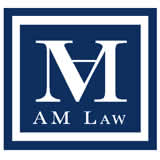A Chapter 11 bankruptcy allows a business to reorganize its debts by filing a plan with the Court stating how the debtor intends to reorganize and pay its debts. A Chapter 11 plan usually pays creditors over a period of five years but the length of plan may be extended up to ten years, with Court approval. Chapter 11 bankruptcy is also available to private individuals who may not meet the requirements to file under Chapter 7 or Chapter 13.
Unlike Chapter 7 or 13 bankruptcies, Chapter 11 bankruptcy requires the filing of first day motions. These motions seek permission from the Court to continue normal business operations — pay employee wages, suppliers or vendors. Another difference between Chapter 11 bankruptcy is higher costs and feessince it requires more filings and greater procedures. The final difference relates to the management of the Chapter 11 plan. In a Chapter 13 bankruptcy, a debtor pays monthly the U.S. Trustee which then distributes funds to creditors. Under a Chapter 11 bankruptcy plan, the business owner is responsible for paying creditors directly.
Overall, a Chapter 11 bankruptcy is complicated and best handled by an attorney experienced and knowledgeable in the various requirements debtors must complete in order to have their Chapter 11 plan approved.
